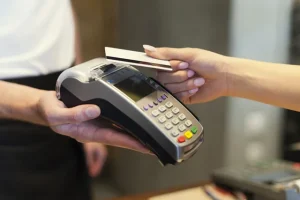Tax Season Has Arrived – So Have the Scammers and Phishers
With the Tax Season upon us, most people are starting the process of filing their Federal Tax returns. Unfortunately, cyber criminals, scammers, and phishers are also active during this busy time.
What can you do to protect yourself during this season when one can easily let their guard down?
Below are the common types of scams associated with Tax Season:
Phone Calls, Texts, Visits from “IRS”
You receive a call from someone stating they are with the IRS and that you owe a significant amount of money or face immediate prosecution. Sometimes they mention that a US Marshall or the Police are often on their way to arrest you at this very moment. However, they are ready to settle your debt immediately via Gift Card, Debit Card, Wire Transfer, Credit Card etc., to avoid further penalties and prosecution. They will often say there is fraud and misconduct associated with your taxes or your return.
How does one know this is a scam?
- The IRS will never call you, text you or send someone to your door. Their mode of communication is typically through the U.S. Mail.
- The IRS will never warn you that there is an arrest warrant for you and arrest is imminent.
- The IRS will always give you an opportunity to contest or question or review their allegations.
- The IRS will never ask for immediate settlement of your debt and certainly not through a Gift Card or Debit Card.
Safeguards You Can Take:
- Do not answer this call. Your caller ID may indicate that the IRS is calling you, but don’t fall for it. Let the call go to voice mail.
- If you do answer the phone, hang up as soon as possible. The longer you stay on the call the more likely you are to fall victim to this scam.
- Do not give out any personal information in the event you do answer the call.
- Report the contact to one of the listed resources below.
- If you receive a letter from the IRS, go directly to the IRS site or via the contact information below to verify that the communication is legitimate.
Phishing from Con Artists
You may receive an email from the IRS or another authoritative resource claiming there is a problem with your return or other tax related issues. Often the subject line may state Tax Transcript. Other scammers may ask you via an email to verify certain personal information about yourself. Criminals may pretend to be with a professional organization or association or bank and ask you to visit their website.
How does one know this is a scam?
- The IRS will never contact you via an email.
- Be wary of unsolicited emails regarding your taxes or asking you to visit a link or provide personal information.
Safeguards You Can Take:
- Don’t open the email
- If you have opened the email do not click on any links
- Verify the email address as often the address from scammers is misspelled.
- Go directly to the entity or company’s website to verify the legitimacy of any emails sent.
Pop Up Tax Preparers
In recent years a new tactic has emerged, either fake emails from legitimate tax preparers (e.g. Turbo Tax, Tax Act) or the presence of new (but fraudulent) Tax Preparers.
How does one know this is a scam?
- The tax preparer promises gifts or incentives to use their services
- The fee is based on the amount of the anticipated return. Legitimate services base their fees on the complexity of the return, not the expected amount.
- The preparers promise a larger return than other preparers (often based on submitting false information and leaving you as the culpable party when the IRS does contact you.
- Email address from Turbo Tax or Tax Act is spelled incorrectly.
- Spelling and grammatical errors are found throughout the communication.
Safeguards You Can Take:
- Only use legitimate and established Tax Preparation entities. Instead of responding to an email from Turbo Tax, go directly to the company website to establish an account.
- Do not open unsolicited emails from so-called tax preparers. If you do open an email, do not click on any links
- Do not confirm or provide any personal information.
- Know who is preparing your return and always verify the information in the tax return as accurate and factual.
- If a tax preparer promises you a prize or a trip, walk away immediately. Legitimate preparers will not promise you any incentives.
Using Your Social Security Number to file a fake tax return
If your identity or personal information has been compromised it is possible that the perpetrators have filed a fake tax return utilizing your Social Security Number.
How does one know this has occurred?
- When filing your legitimate return, the IRS has informed you that a return has already been filed.
- You are aware that your identity has been stolen or compromised including your Social Security Number. While not definitive that a false tax return has been filed, the chances are enhanced that you are vulnerable to this activity.
Safeguards You Can Take:
- File as early as possible, electronically and via a reputable tax preparer.
- Do not store your return on your computer or tablet in the event your machine is hacked or stolen.
- Do not use public WIFI (e.g. McDonalds, Starbucks) to file your return.
- A cyber security expert appearing on a recent business talk show mentioned that if possible, use a dedicated machine, tablet or laptop for banking, investments and filing tax returns.Use another device for emails or internet surfing.
Suspicious or unsolicited emails purporting to be from the IRS should be forwarded to phishing@irs.gov.
If you have been fraudulently contacted and don’t owe taxes:
Report it to the Federal Trade Commission. Use the “FTC Complaint Assistant” on FTC.gov. Please add “IRS Telephone Scam” in the notes.
If you have been fraudulently contacted and do owe taxes:
Individuals should call the IRS directly at 800-829-1040 while businesses should call 800-829-4933.
Have a safe and enjoyable tax season!!!
Finding a credible expert with the appropriate background, expertise, and credentials can be difficult. CompliancePoint is here to help.





